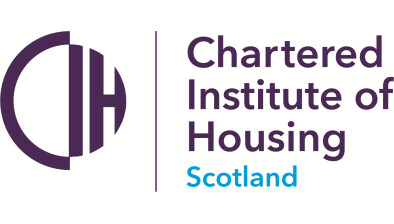Scottish Borders Council and partners brace for Universal Credit Full Service roll-out

Scottish Borders Council (SBC) and partners are working together to provide information and advice to residents on the Department for Work and Pensions’ roll out of Universal Credit (UC) Full Service in the Borders, which began yesterday.
The roll out of UC is taking place in stages across the UK as part of ongoing welfare reforms. It is a simplified benefit for people of working age and is designed to make it easier for people to move back into work. It replaces Housing Benefit, Income Support, Income Based Jobseeker’s Allowance, Income Related Employment and Support Allowance, Child Tax Credit and Working Tax Credit.
In the Borders, SBC has been working in partnership with the four local housing associations, Citizen’s Advice Bureau (CAB), Live Borders’ Libraries and the Department for Work and Pensions (DWP) to ensure information and support is in place for claimants.
As part of this, residents who already receive benefits are being reminded that they do not need to do anything until they are contacted by the DWP about moving to UC.
Anyone who thinks they might be entitled to UC and do not already claim benefits are being encouraged to play their part and get online, get informed and seek advice from any of the organisations available locally if they need it.
Scottish Borders Council leader Shona Haslam explained: “It is really important that people understand that the roll out of UC Full Service will take place gradually. It will only be applied for new claims from today, with those who are already claiming benefits being contacted directly as part of a phased approach by the DWP to extend UC to existing claimants.
“As part of our #yourpart campaign we are asking anyone who thinks they might be entitled to UC to play their part and get online, get informed and seek advice as soon as possible to allow them to submit their claim without any unnecessary delays.
“Applications for UC generally need to be made online but there is plenty support available to help locally either from your local council contact centres, your housing association or Citizen’s Advice Bureau to process your claim. You can go along to any of these offices as well as your local library to get online if you do not have internet access.”
Once a UC application is made, there will be about a five week wait before the first payment is received and the standard way that UC is paid is to one member of the household monthly or twice every month. SBC and its partners are providing a range of options for residents to get support during this process either with budgeting, and/or financial assistance and residents are being asked to make sure they contact the Council, CAB or Housing Association for advice around this.
Tenants are also being asked to make sure they engage with their landlord or housing association to work out what is best for paying rent and seek advice if they need it.
Councillor Mark Rowley, executive member for business and economic development (with responsibility for housing), explained: “Our advice to tenants who may be in receipt of UC is to make sure they speak to their Housing Officer and/or Landlord to ensure arrangements are suitable for paying rent.
“If you get help with your rent this will be included in your UC payment so it will be your responsibility to pay your landlord directly. You could request that the rent element of your UC is made directly to your landlord but if you don’t request this, it will be made to you.
“Most housing associations and landlords offer a number of payment options therefore tenants should not delay in seeking advice or housing association or landlord to work out what is best. Do not ignore the situation if you require assistance with anything– staff are available to help you.”
As the transition to UC Full Service takes place, the Council and partner organisations will continue to work together to ensure that local people are made aware of when the changes will take place and how they may affect them. The partners will also ensure that people have easy access to information about welfare reform and the advice and support available.







